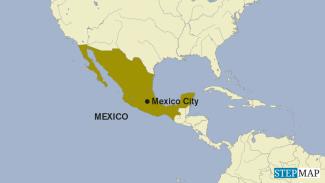Agriculture
Empowerment of female smallholders

The town of Miguel Hidalgo is in a rural area in the south of Mexico and has 826 inhabitants. Here, women are not allowed to own land. Many residents cannot afford basic needs such as food, access to water, health and education, which have increased families’ economic precariousness and food insecurity. An earthquake in 2017 and the Covid-19 pandemic have made life even harder.
The NGO Proyecto ConcentrArte has partnered with a community foundation to work with the community of Miguel Hidalgo to promote food sovereignty. The two organisations seek to use agroecology to provide food, increase household income, foster community cohesion, regenerate the soil and enhance ecosystem biodiversity.
In 2019, Proyecto ConcentrArte was able to bring together 35 women who named themselves “Women of the Orchard” to start a garden that relies on regenerative agriculture and agroforestry systems to harvest various species of plants. In two years, they have managed to strengthen the community fabric by sharing the work and the harvest equally. The Women of the Orchard have also succeeded in generating their own seeds, which can be reused, consumed and used to build seed banks, allowing them to maintain seed diversification and traditional knowledge.
The community project has achieved a major mindset change in Miguel Hidalgo, also because the people realised that not only the women benefit, but also the husbands, children and family members of the women. According to Fernanda Cano from Proyecto ConcentrArte’s, “the community recognised the role of women in the wellbeing of their community and families, so the council of land holders met and decided to give them a plot of land on loan so they could continue planting for the next 15 years.”
Currently, the garden space has gone from being a plot of land with only three crops, corn, beans and squash, to an agroforestry garden with 36 species, each of which fulfils a function in the agroecosystem. Additionally, income from the sale of surplus harvest has inspired the women to consider the formation of a cooperative society through which they can have more sustainable income sources.
Pamela Cruz is the Special Projects Coordinator at Comunalia, a network of community foundations in Mexico and Strategic Advisor at MY World Mexico.
pamela.cruzm@gmail.com













